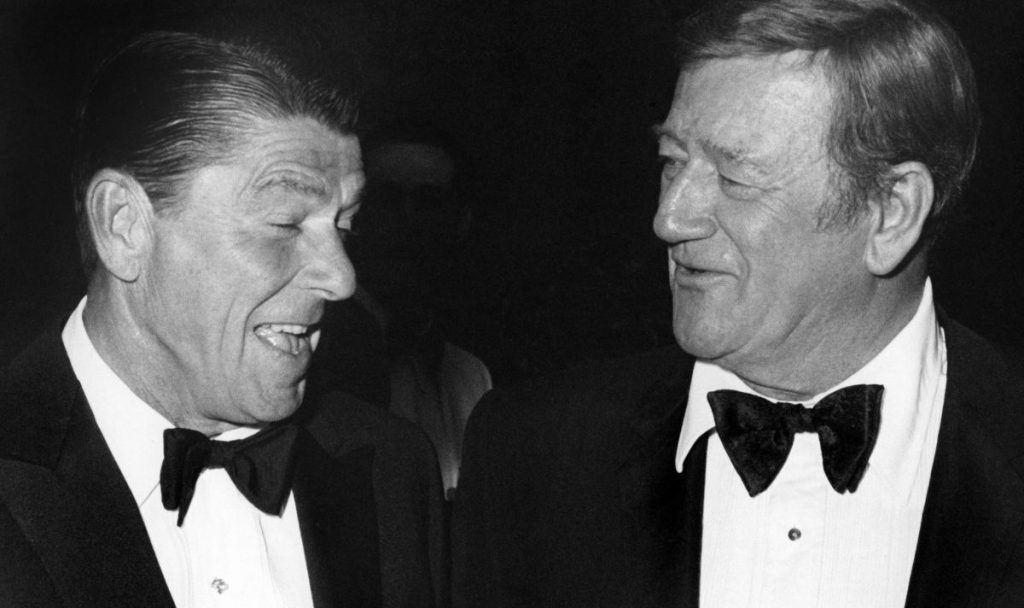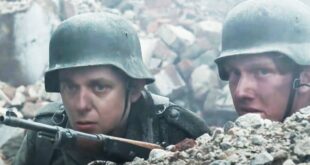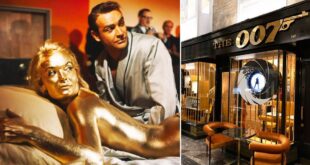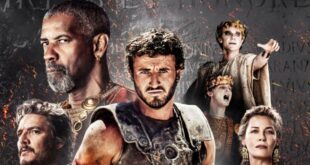
John Wayne, the Oscar-winning action hero whose films can be watched on BBC iPlayer, once became embroiled in a bitter war of words with Ronald Reagan, the Republican politician who led the US between 1981 and 1989. Though Wayne tried to steer clear of politics, his beliefs were often detailed due to his high-profile career, which culminated in his Academy Award win for Best Actor through his work on True Grit in 1969.
The man often referred to as Duke was known to be a conservative American, staunchly against Communism, beliefs which earned him universal praise from international leaders.
But Wayne was incensed with Reagan after he felt he was spreading lies to his supporters over the Panama Canal Treaty of 1977, which saw conservative politicians lash out at the decision to “surrender” in the agreement.
Before becoming a Republican politician, Reagan and Wayne had crossed paths in the world of Hollywood, with the former serving as the president of the Screen Actors Guild (SAG), the acting world’s union that today represents around 160,000 people in the industry.
While leading the union, Reagan backed an actors’ strike in 1960, which came against major Hollywood studio executives over the residual pay system.
Reagan’s name was “dragged through the mud” as a result of his decision to back the strikes, and Wayne opted to support the SAG president by contacting his wife, Nancy Reagan, to voice his praise for the leader.
But in the years that followed, Wayne tore Reagan apart when it came to the Panama Canal Treaty.
The New York Times, reports show, noted how Wayne wrote a furious letter to Reagan over his decision to not back the treaty, which was signed by then US-President Jimmy Carter.
Wayne was expected to back the treaty, with many noting that his first wife hailed from Panama. Among his friends, it was also revealed, were the Panamanian leader Brig. Gen. Omar Torrijos Herrera.
JUST IN: John Wayne’s brutal tradition on every film reduced co-star to tears
After learning of Reagan’s stance, Wayne wrote: “Now I have taken your letter, and I’ll show you point by goddamn point in the treaty where you are misinforming people.
“If you continue these erroneous remarks, someone will publicise your letter to prove that you are not as thorough in your reviewing of this treaty as you say or are damned obtuse when it comes to reading the English language.”
Wayne’s politics did sometimes impact the work he took on, including when it came to the war efforts. He starred, for example, in films such as Sands of Iwo Jima and The Green Berets, which outlined what an American hero should look like in his eyes.
As his career continued into its twilight, he became more forthright in his beliefs and outspoken as a result. He took part in a now-infamous Playboy interview in 1971, revealing the true extent of his politics.
DON’T MISS:
John Wayne’s brutal dressing down of double-Oscar winner Gene Hackman [INSIGHT]
Raquel Welch told ‘big bad John Wayne’ what made him ‘real pushover’ [LATEST]
John Wayne’s incredible generosity when shooting The Searchers [ANALYSIS]
During the interview he spoke of how he “believed in white supremacy,” before speaking bitterly about African-Americans, saying, “we can’t all of a sudden get down on our knees and turn everything over to the leadership of the blacks”.
He also admitted to not feeling “guilty about the fact that five or 10 generations ago these people were slaves,” and added: “Now, I’m not condoning slavery.
“It’s just a fact of life, like the kid who gets infantile paralysis and has to wear braces so he can’t play football with the rest of us.”
Another controversial moment in Wayne’s career came in 1973 when Sacheen Littlefeather delivered Marlon Brando’s winning Oscar speech after he was named Best Actor for his role in The Godfather.
Littlefeather, who was 26 at the time, rejected the award on Brando’s behalf, giving a speech instead to condemn Hollywood’s poor depiction of Native Americans.
At the time, Wayne reportedly attempted to wrestle Littlefeather off-set and had to be restrained when he approached her.
The activist recalled the event last year while speaking to Variety, describing it as the “most violent moment” in the history of the Academy Awards.
She said: “I found out that he had been restrained by six security men from assaulting me while I was on that stage. That was the most violent moment that had ever taken place at the Academy Awards.”
Reflecting on Wayne’s actions, she added: “He was never admonished by the Academy. It was never published in the press. But the most violent moments took place then and there at the Academy Awards by John Wayne.
“All I know is that… I don’t hold anger, hate or have any animosity toward anyone, including the Academy and the John Waynes of the world.
“I’m not a wealthy person. I’m a poor person. I don’t have much, but I do what I can. I try not to judge others. So, what other people want to do and what they feel in their hearts, they have to do.”

 Latest Breaking News Online News Portal
Latest Breaking News Online News Portal




